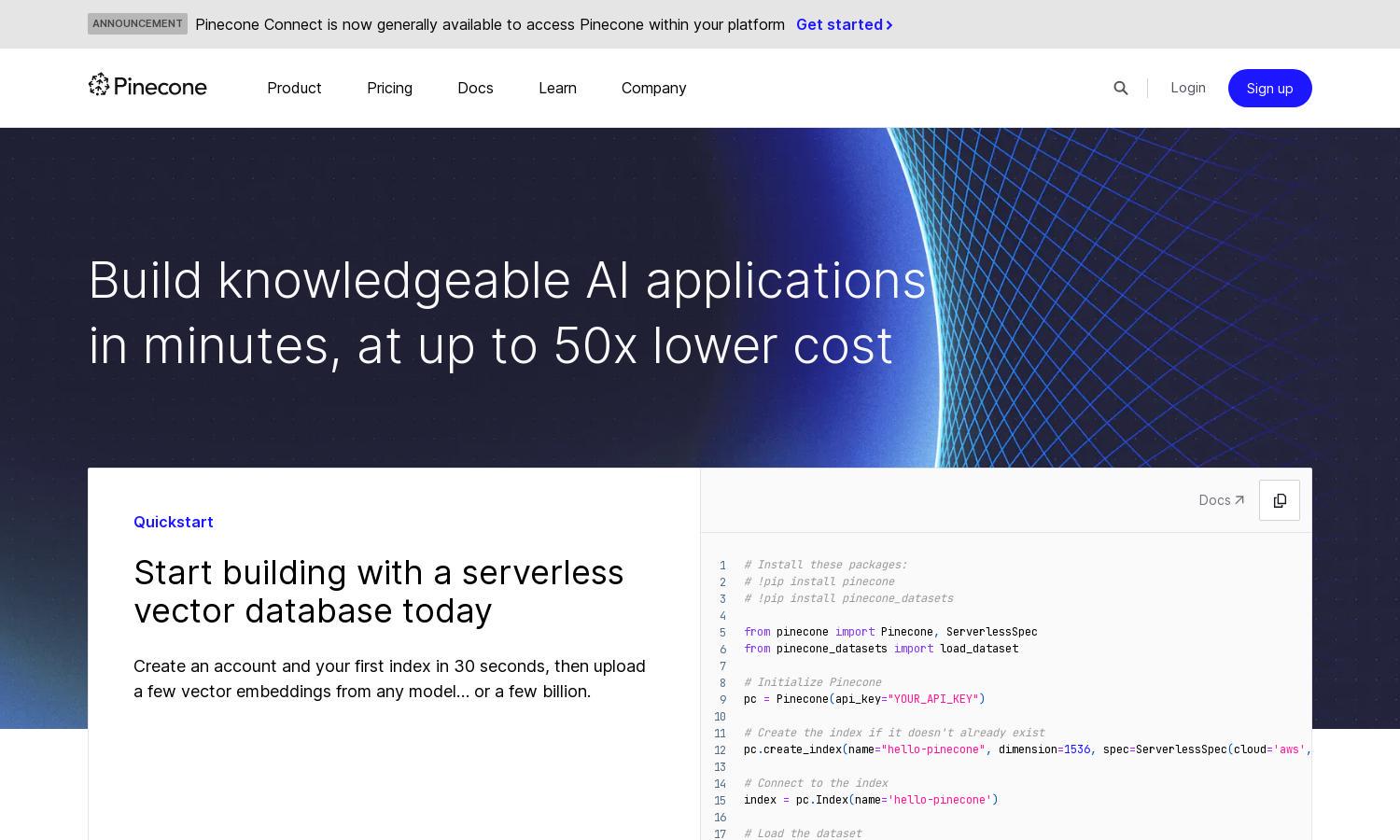Pinecone

About Pinecone
Pinecone is a serverless vector database designed for developers seeking to build AI-powered applications. By enabling real-time vector search across massive datasets, it empowers organizations to harness the power of AI for innovative applications. This unique architecture accelerates development and reduces costs significantly.
Pinecone offers a flexible pricing model, allowing users to start with a free tier for basic features. As their needs grow, they can upgrade to scalable plans with advanced functionalities, ensuring they receive optimal performance and value. This structure supports growth while keeping costs manageable.
Pinecone features an intuitive user interface that simplifies navigation and interaction. Its layout fosters a seamless browsing experience, equipped with user-friendly tools and resources for quick onboarding. This design ensures users can effectively utilize the platform, enhancing their overall experience and productivity.
How Pinecone works
Users begin with Pinecone by creating an account and launching their first index within seconds. The platform guides users through uploading vector embeddings and performing low-latency vector searches with ease. Its dedicated documentation and quickstart guides minimize the learning curve, enabling smooth navigation of advanced features.
Key Features for Pinecone
Real-time Vector Search
Pinecone's real-time vector search enables instant retrieval of relevant data from billions of items. This unique feature significantly enhances AI applications, allowing developers to provide swift, accurate results to users, revolutionizing search capabilities across industries.
Serverless Architecture
The serverless architecture of Pinecone allows users to build and scale AI applications without managing underlying infrastructure. This flexibility empowers organizations to focus on innovation while Pinecone handles all database operations, contributing to improved efficiency and reduced costs.
Metadata Filtering
Pinecone supports advanced metadata filtering, enabling users to refine search results based on specific criteria. This feature enhances the relevance of retrieved data, providing a tailored experience that meets diverse requirements, making it a critical tool for developers.
You may also like:








